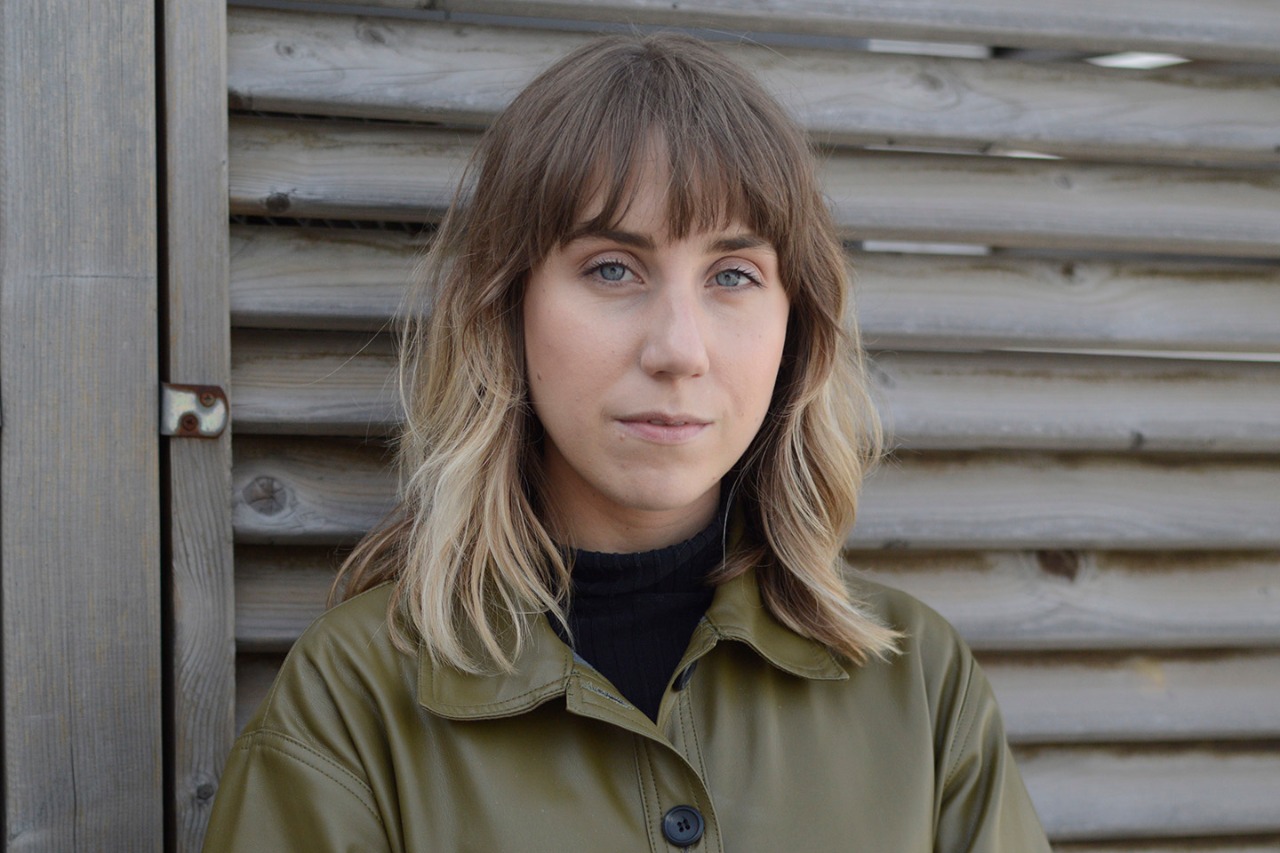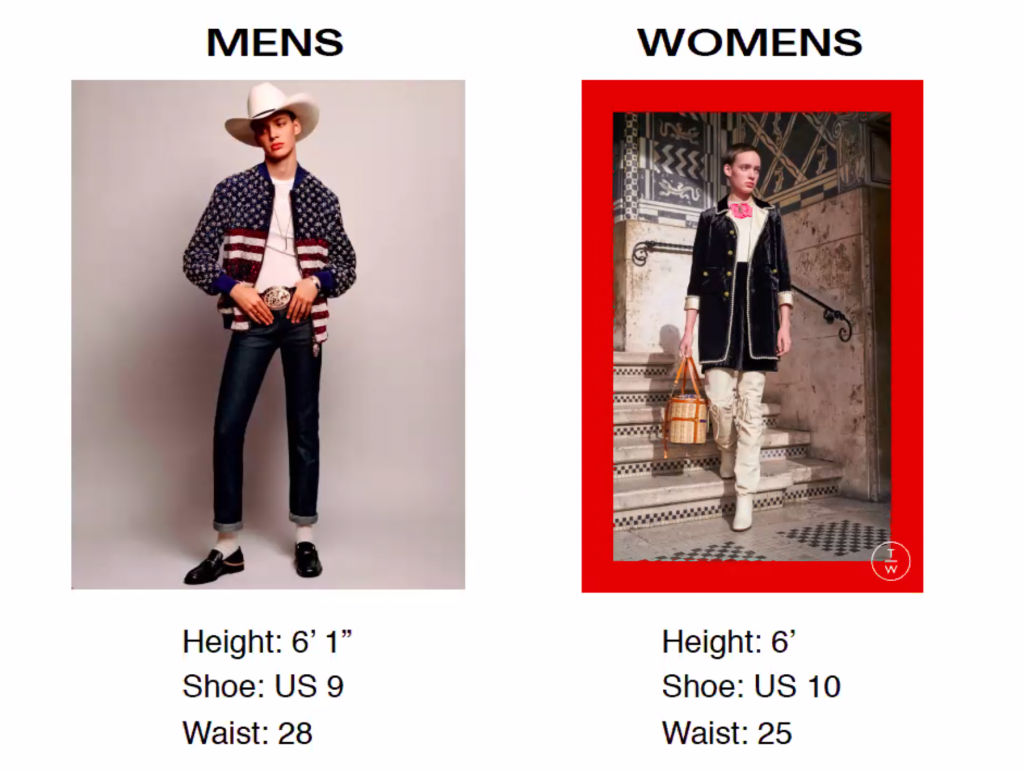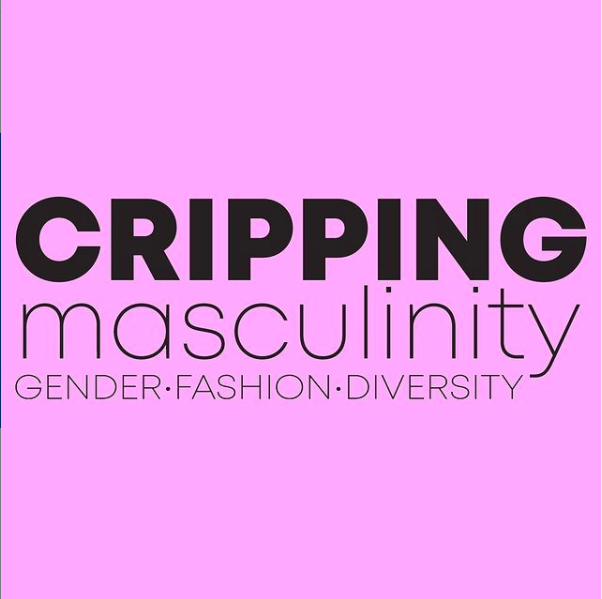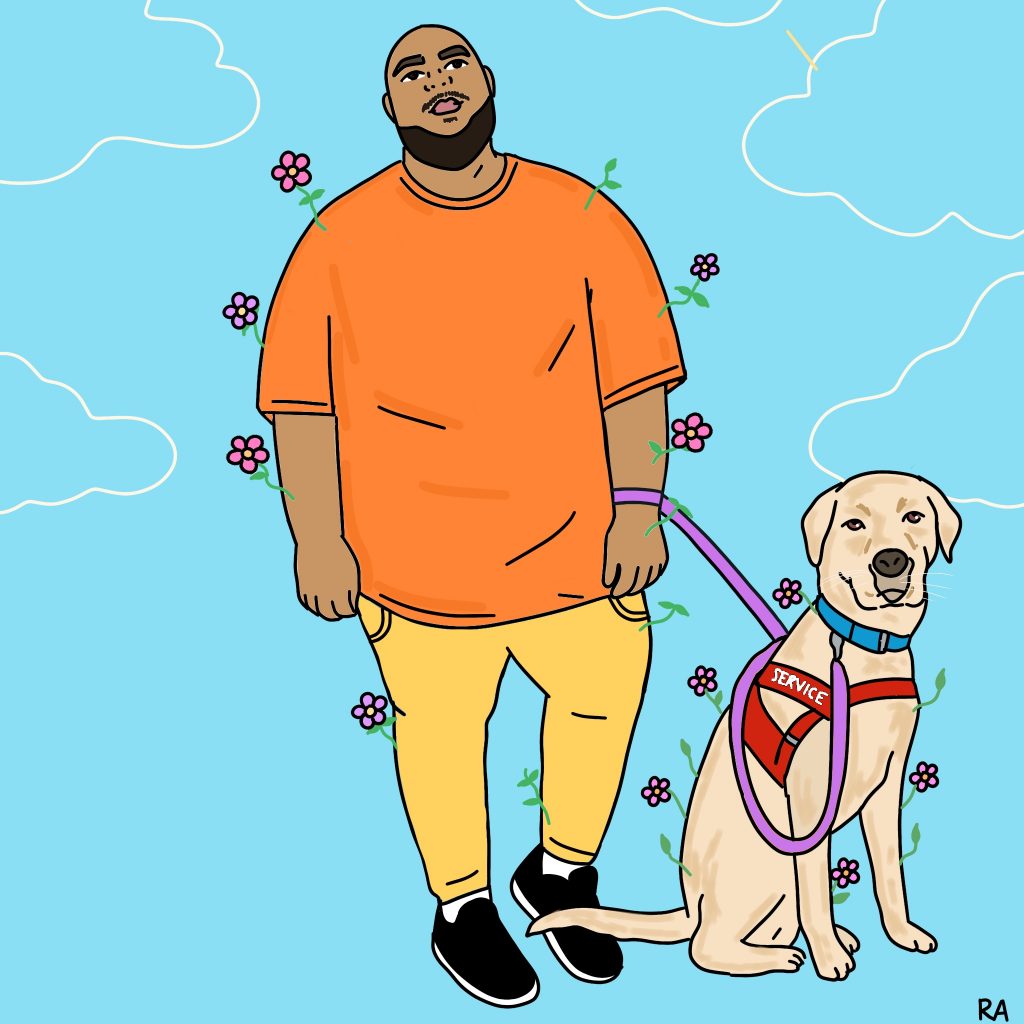
An interview with Philippa Nesbitt, MA Fashion Studies Alumni
After speaking to MA Fashion Studies students as part of their class Fashion, Identity and the Body, Philippa Nesbitt, MAFS alumni and PhD candidate at Ryerson University, shares with us what her path through Parsons Paris was like and how it led her to her current and upcoming projects.
On Wednesday November 25 2020, she held for our MA students a lecture on the topic of transgender models and their history in the fashion industry, questioning practices of tokenism in casting trans models and hypervisibility in social media. Has there really been a change since the advent of trans models such as April Ashley and Lauren Foster in 1960s and the 1990s?

Phillippa stresses the contradictions behind this new tendency within the fashion industry. These pictures presented by Nesbitt represent model Oslo Grace being presented both on the men’s and women’s board. The difference in measurements serves as an example of how the modeling industry continues to be driven by strict categorizations and hegemonic gender binary structures, even when representing transgender or non-binary models.
Holding a BA in Sociology and Critical Studies in Sexuality from the UBC, and a MA in Fashion Studies from Parsons Paris, Philippa Nesbitt is currently pursuing her PhD in Communication and Culture at Ryerson University. Her Ph.D research is continuing her previous project on inclusivity as she is now focusing on the representation of disabilities in fashion media, analyzing fashion as a tool for social change and how these representations resonate in society.
In the interview below, we asked her to share with us her experience at Parsons Paris, her past and future projects.
- What were your ideas for the future when you applied to parsons?
I think I always knew I was going to pursue an academic career, so when I applied to Parsons Paris, a PhD was always sort of in the back of my mind. Although I worked in the “industry” at a management level, I didn’t necessarily know much about the ‘ins and outs’ of it, or see myself wanting to be a part of it. Of course that changed a lot once I got into the program, learned more, and had some work in writing, styling and researching for fashion companies and magazines. I think that’s the great part about this specific program. You get to see both sides!
- What made you choose this specific program?
I’ve always really loved fashion, but it always felt like a different side of me outside of my studies. I did my undergraduate degree in sociology and queer studies, and I didn’t see too many programs that bridged my love for fashion with my academic background, which was really frustrating. As I was applying to more “traditional” sociology programs, I felt like I was really leaving a part of myself behind, and closing the door to the life I had built in Paris in the years leading up to it. So when I found the Fashion Studies program in Paris, it seemed too good to be true. After meeting with Marco and learning more about how it intersected all of my areas of interest and the possibilities of studying fashion through the social justice framework I cared a lot about, I knew it was perfect for me.
- Which were your favorite courses during the Master? What were the highlights from your master?
It’s really hard for me to choose! I got so much out of the theory and research classes because it was a good way to rethink theorists I knew through a fashion lens. Fashion, Identity and the Body was one I connected with the most, because it dealt with really important issues and the way this came through in fashion. I also loved the hands-on creative courses like Fashion Cultures, Fashion Branding and Communication and Curating. For Fashion Branding, I loved conceptualizing new ideas directly with Justin Morin and Koché, the brand we were working with that semester, and was super excited to share my work in an exhibition format after. I also loved going to Antwerp with Marco and Laurent Cotta to work with MoMu for Curating, and was super proud of our exhibition we created in that class. My internships with Byronesque and Revue Magazine were also really valuable, and I’m super grateful to everyone at both of those. I really did learn so much and have some cool opportunities that helped build my career in the industry. And I’m still in touch with all of them!
- What was the topic of your thesis? How was the idea for your thesis born?
My thesis was all about the representation of transgender and non-binary models in mainstream fashion. As I mentioned, half of my undergrad was in queer studies, so alongside my fashion obsession, I really noticed a lot of queer issues and representation starting to be present in some of my favourite magazines and brands’ campaigns. I thought it was really amazing because a lot of my trans and non-binary friends weren’t seeing themselves represented in high fashion before – it was far more grassroots and maybe not as widely considered “cool” or accessible. But one always has to be skeptical of these random increases in diversity when it’s connected to a really capitalist system! I also noticed that academia had largely ignored this new thing that was happening, so I thought I’d take it on and maybe find out some pros and cons that would be helpful for representations of diversity in the future.
- How did the MA program in Fashion Studies at Parsons help your professional experience?
When I thought I wanted to abandon academia and work in the industry, I had a pretty solid portfolio of work I was really proud of. I knew enough about fashion history, branding, conceptualizing fashion to sort of go into anything. That was actually a big challenge for me because I wanted to do everything. But people were excited by my past work and excited about my connection with Parsons. Now, being in academia again, I feel really lucky to have had the push from Marco and all my professors to dive deeper into fashion studies through new perspectives. Marco has already really helped me carve out my academic path, and presented lots of ideas for future work that I’m super excited about. I’ve also had the opportunity to publish a book with my former supervisor, Paul Jobling, and a classmate, Angelene Wong– that sort of thing doesn’t happen very often right out of your MA! But I think the size of the program allows you to really shine where you want to and connect with people you’re inspired by to get on the path you want.

Nesbitt has joined the team behind the ‘Cripping Masculinity’ project at Ryerson University in collaboration with the University of Alberta in Edmonton. The project was created to explore the ways in which Disability, Deaf, or Mad identified men (Cis or Trans) and Masculine Identified Non-Binary People build and live their experiences through clothing as an everyday performance.
The project, named after Kelly Fristch’s definition of crip as ‘to open up with desire the ways disability disrupts’, looks to engage with people through various activities such as clothing design workshops, interviews, and fashion shows and exhibitions, in order to generate new understandings of gender, disability and fashion by ‘cripping’ the existent dominant narratives.

To know more about her and her work you can follow her on instagram @philippa__n and in @statementsthepodcast, the critical fashion podcast addressing issues of ethics, diversity and which she co-hosts with another MAFS alumni, Katie Wilkes.